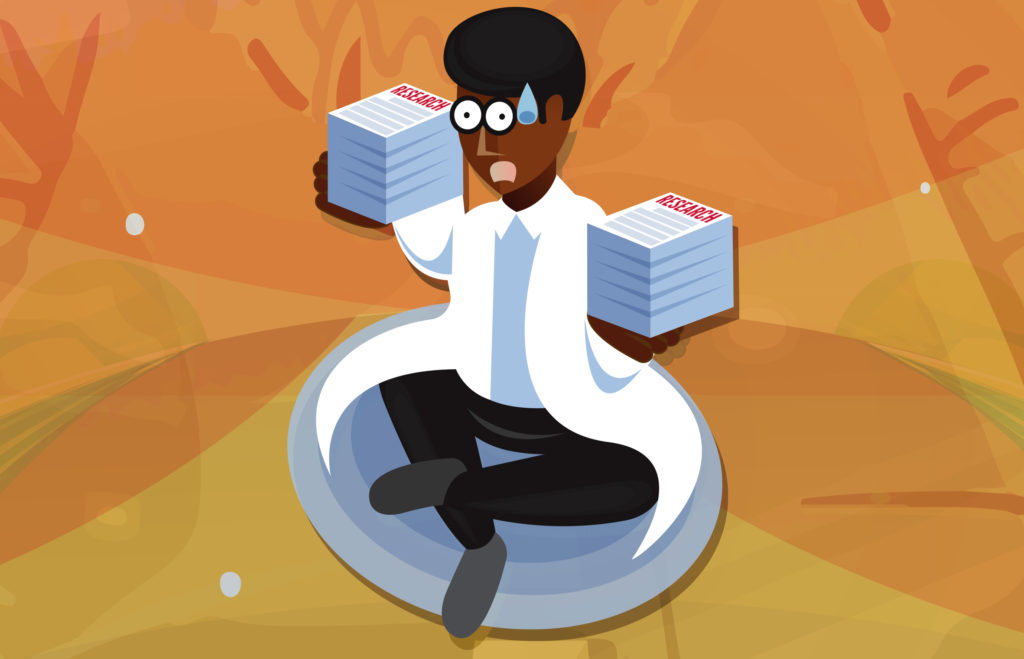Science, like politics, can elicit polarizing opinions. But with an ever-expanding body of knowledge — and the especially dizzying flurry of findings during the pandemic — is it fair to say that views on science are becoming more extreme?
Measuring the polarization
“A standard way of measuring polarization in the U.S. is asking Democrats and Republicans how warmly they feel toward members of their own group and members of their outgroup on a feeling thermometer from 0 to 100,” said Jessica Gottlieb, professor at the UH Hobby School of Public Affairs. “The difference in ingroup-outgroup warmth is then considered a measure of polarization. This has been measured by the American National Elections Studies systematically over the past several decades, and indeed the level of affective polarization has been increasing in the U.S.”
“Absolutism is the culprit.”
In an article in Foreign Affairs entitled, “How Extremism Went Mainstream,” the author notes that “the tools that authorities use to combat extremists become less useful when the line between the fringe and the center starts to blur.”
Science has traditionally been one such tool. However, this extremism — where everything is black and white — in politics, has made its unfortunate way into academia. John Lienhard is a professor at the University of Houston and host of “Engines of Our Ingenuity,” a national radio program which has been telling stories of how creativity has shaped our culture since 1988. According to Lienhard, extremism — as seen within the scientific enterprise — goes by a different name.
“Absolutism is the culprit – the need on the part of so many of us to know The Right Answer. The absolutists in the world will glom onto whatever vehicle suits them – religion, politics, education, and ultimately, science itself,” said Lienhard. In other words, good scientists amend and revise, while “the absolutist finds the honest practice of science hateful,” he says, “because science is a way of life where everything lies open to question.”
A series of approximations
In an article entitled, “If You Say Science Is Right You’re Wrong,” professor Naomi Oreskes introduces this quote by Nobel Prize–winning physicist Steven Weinberg:
“Even though a scientific theory is in a sense a social consensus, it is unlike any other sort of consensus in that it is culture-free and permanent.”
Well, no. Even a modest familiarity with the history of science offers many examples of matters that scientists thought they had resolved, only to discover that they needed to be reconsidered.
Some familiar examples are Earth as the center of the universe, the absolute nature of time and space, the stability of continents and the cause of infectious disease.
Absolutism in science is dangerous. Good scientists know how important it is to ask probing questions. In his book entitled, Science versus Absolutism: Science Approaches Truth by a Series of Approximations, the chemist T. Swann Harding asks the question: “What are scientific laws?” He goes on to answer:
“Most people appear to regard them as singularly exact and unalterable things … to violate them brings swift retribution. They are unchanging and eternal in character. Yet the so-called laws of science are really rules pieced together by man on a basis of much observation and experiment.”
In the past, so much of science was just plain wrong – until another researcher came around and amended the original belief (think Galileo). How are our modern times any different? There are still many situations where scientific thought has needed to be amended. Even as recently as the COVID crisis, researchers were revising their thoughts about the spread and contagiousness of the disease.
Allowing for dissent
In a Scientific American blog, Matt Nolan writes that “Dissent in Science Is Essential–up to a Point.” In it, he said, “It is the public who pay the price when marginalized science informs policy. History reminds us this is unsafe territory.” However, Lienhard adds that Einstein set limits on the validity of Newton’s laws just as nuclear fission provided an amendment to the conservation of energy law. There is always a new question to formalize where experimentation is being conducted.
Referred to as the “file drawer effect,” another predicament occurs when a researcher does not get the answer they were expecting, and therefore, decides to not publish the negative findings. Every answer is meaningful. And sometimes a negative answer — or no answer — is an answer.
Dissent, and perhaps a certain measure of disappointment, is a critical part of scientific inquiry.
The Big Idea
Science can be thought of as the best we know to the degree we understand a given problem at a given place and time. Absolutism has no bearing on the scientific process and in some cases actively obscures and colors that understanding. And that’s not black and white at all; that’s about as gray as it gets.



